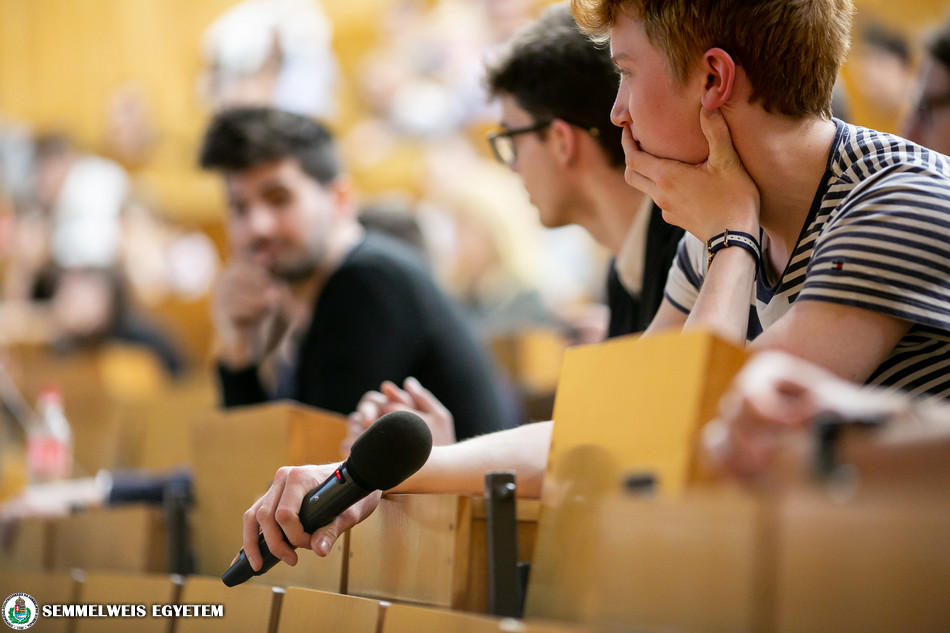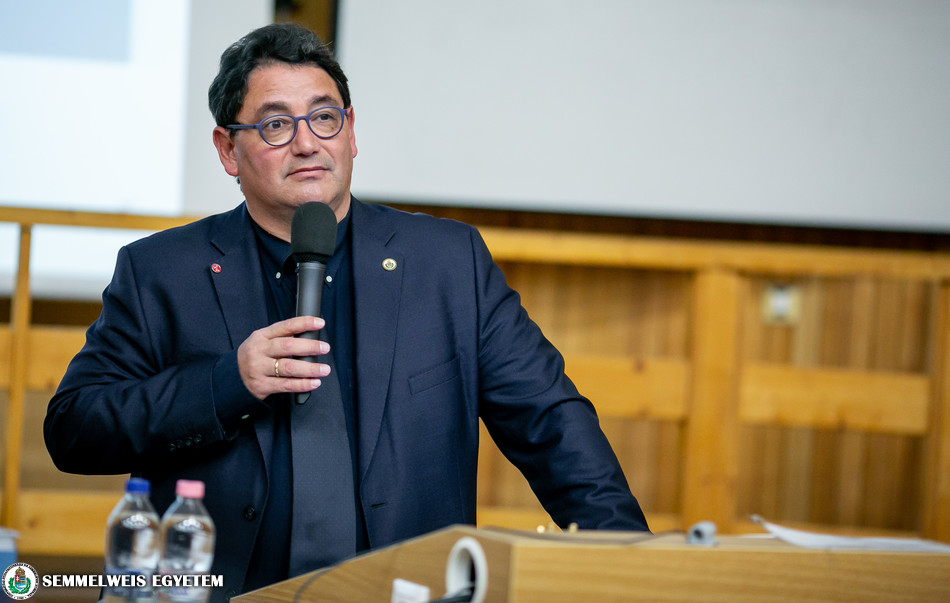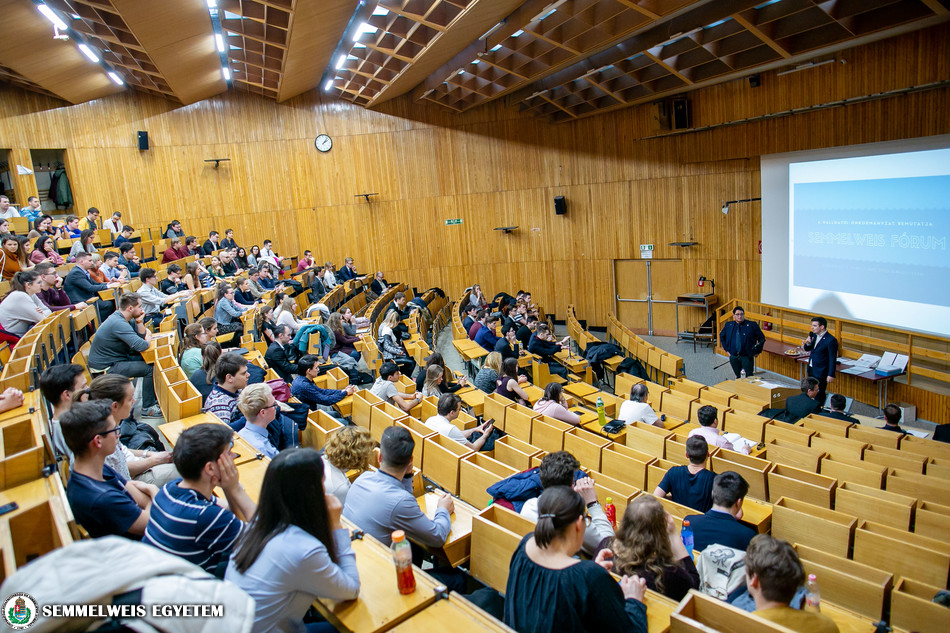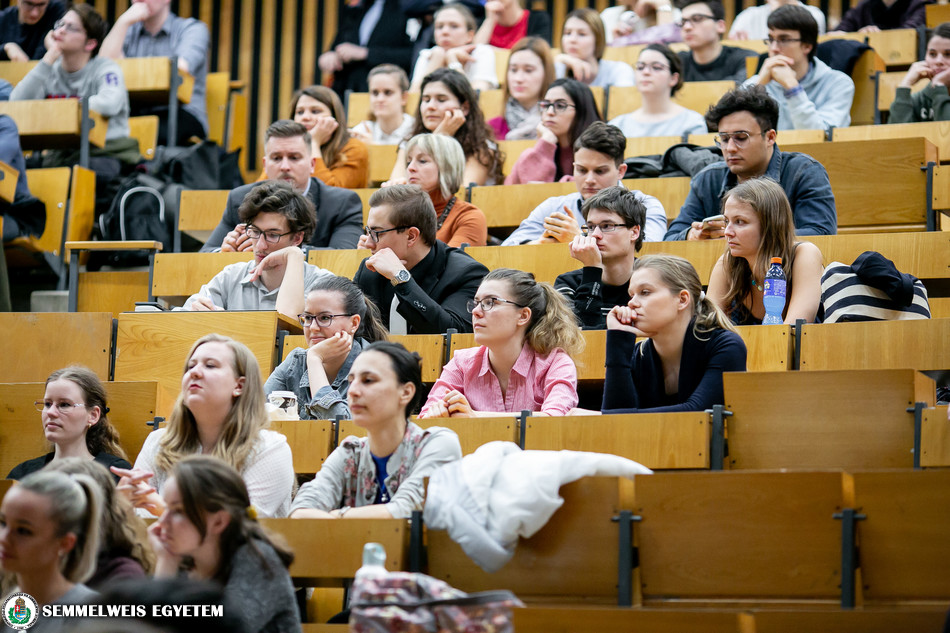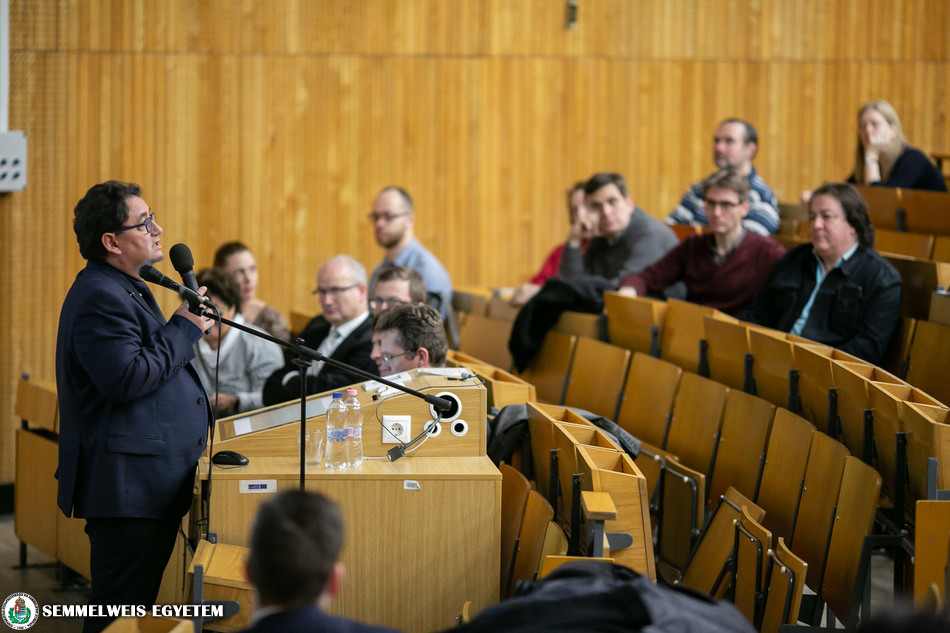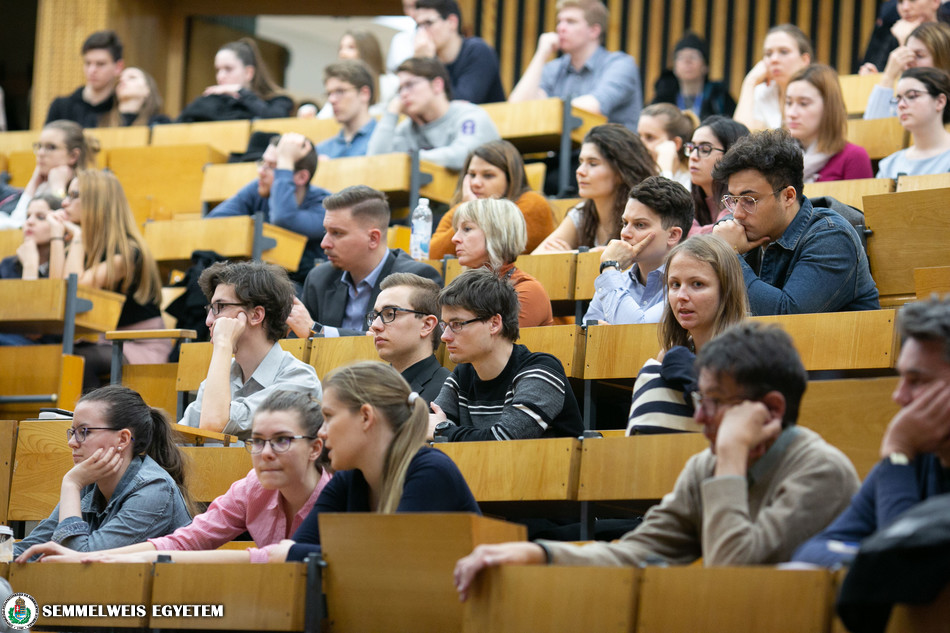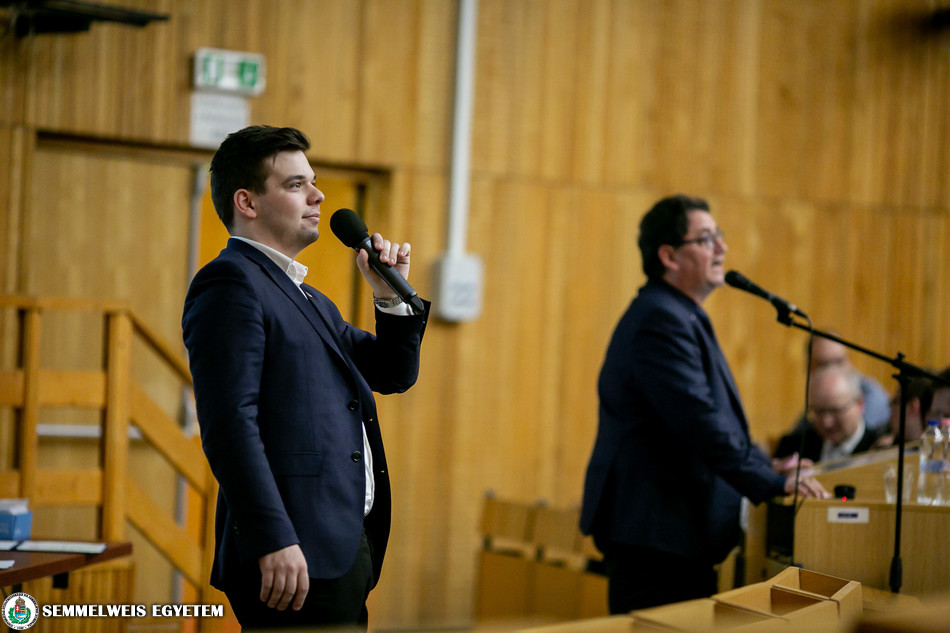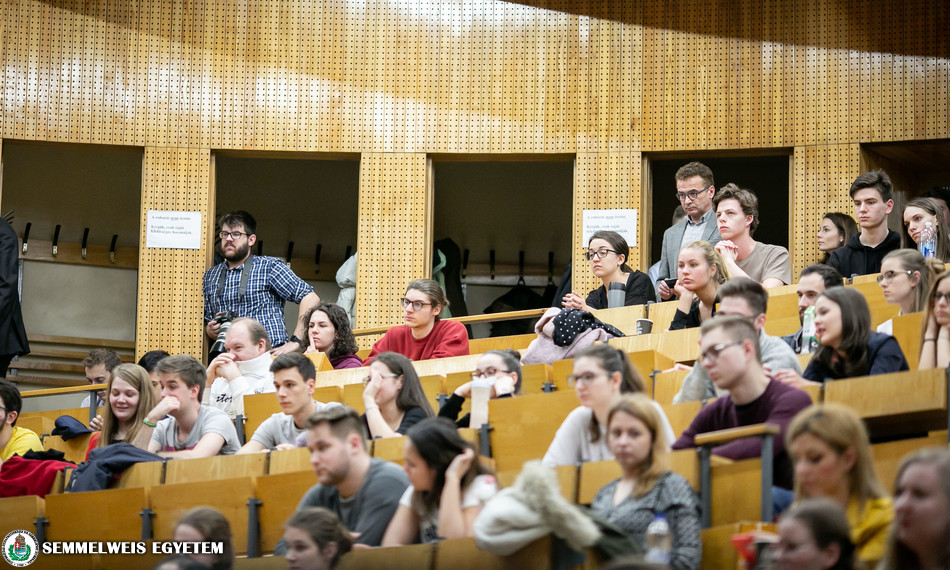An interactive forum was organized by the Students’ Union, where students had an opportunity to ask the university’s rector Dr. Béla Merkely about his plans for structural changes in education at the institution. The rector gave a brief overview of the plans to renew the curriculum and expected reforms in education, and after his speech he also answered questions from students and responded to their comments and proposals. The rector plans to hold a similar forum in the near future for foreign students as well.
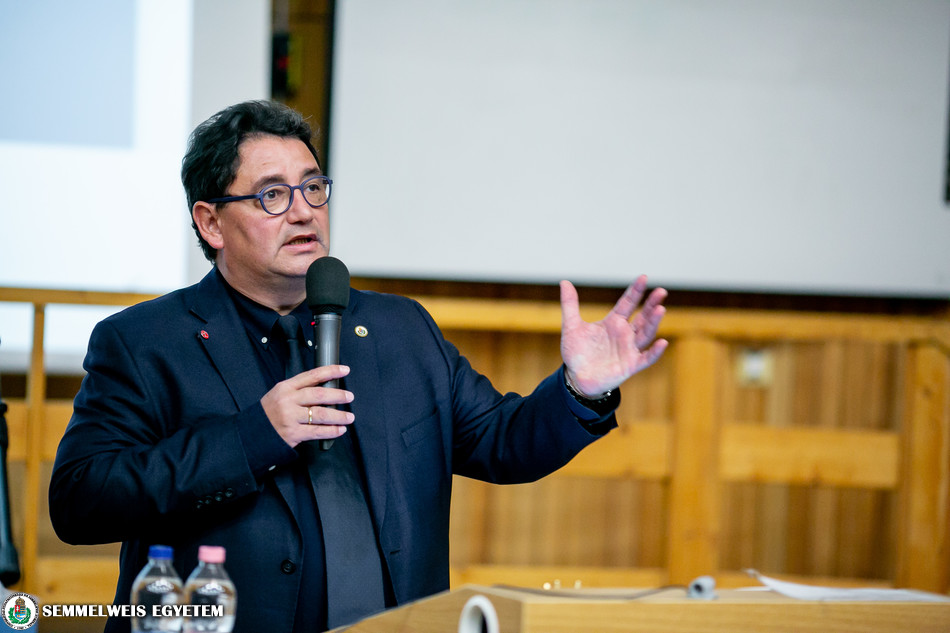 The main topic of the student forum, which was held for the second time at the university, was a question that greatly affects and interests students: the expected structural changes in education. Dr. Béla Merkely said that the forums organized by the Students’ Union are especially important, as continuous consultations with students is a major pillar of introducing future reforms, and is the first step in renewing the curriculum. In his speech, he emphasized that Semmelweis University will enter its 250th academic year this September, which is a huge milestone. He added that this anniversary year will bring fundamental changes for the next quarter-millennium, as the first great curriculum reform in medical education will take place, in cooperation with the Universities of Szeged, Pécs and Debrecen.
The main topic of the student forum, which was held for the second time at the university, was a question that greatly affects and interests students: the expected structural changes in education. Dr. Béla Merkely said that the forums organized by the Students’ Union are especially important, as continuous consultations with students is a major pillar of introducing future reforms, and is the first step in renewing the curriculum. In his speech, he emphasized that Semmelweis University will enter its 250th academic year this September, which is a huge milestone. He added that this anniversary year will bring fundamental changes for the next quarter-millennium, as the first great curriculum reform in medical education will take place, in cooperation with the Universities of Szeged, Pécs and Debrecen.
In his overview, the rector stressed that although theoretical training is high quality at Semmelweis University, progress can only be achieved if the quality of practical training also rises to the same high level, and if the two areas build on each other better. He noted that they have been looking at and analyzing the curriculums of the top 100 institutions on the Times Higher Education (THE) global rankings, and it has become clear that the practices of the past 40–50 years cannot continue any longer. He pointed out that traditions are a good starting point, but ingrained practices should not merely be repeated.
The rector declared that health care needs physicians who have real clinical experience, built of course upon a strong theoretical foundation. The goal is to achieve that after acquiring their diploma, and entering the maximum five-year post-graduate period, students do indeed focus on studying the theory and manual details of the chosen specialty. The renewed six-year curriculum of medical training will consist of two years of theory, one transitional year and a three-year period spent in clinical practice. The latter means practical education directly at the bedside, conducted mostly in blocks, where the theoretical foundations are merely refreshed, the rector said.
As part of his overview, Dr. Béla Merkely also commented on the high failure rates seen in the first two years, which in his opinion can be attributed to the curriculum not being taught with the right methods and with the right efficiency, while he believes one of the biggest problems is the sheer size of the curriculum. It is not the quantity of the curriculum that indicates the quality of training, but much rather, it is grasping the substance of it, and deepening the knowledge that is important and can be applied in clinical practice, that can act as a foundation for development, he noted.
The rector’s address was followed by an interactive forum with students, who were mostly interested in the details of the curriculum’s structural changes and the reforms affecting the various faculties, and also asked about the expected changes and developments related to the Semmelweis XXI Development Project. At the end of the forum, Dr. Béla Merkely called students’ attention to the Semmelweis Lab, said that they will continue to be able to send their comments and proposals on the curriculum reform through the consultations held with student representatives, and that a wide-range consultation with the entire university will be launched soon in the form of questionnaires.
Zsófia Haszon-Nagy
Translation: Tamás Deme
Photo: Attila Kovács – Semmelweis University
